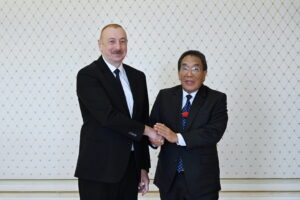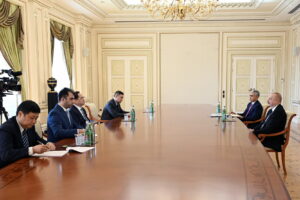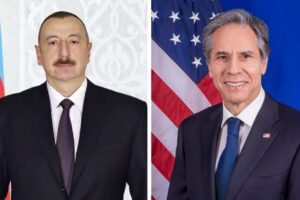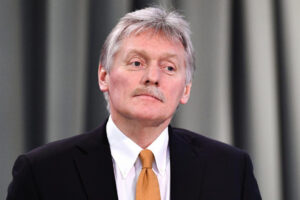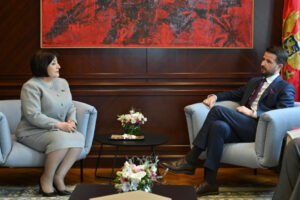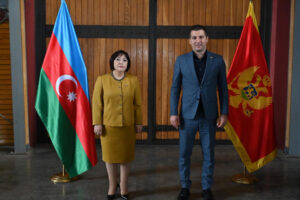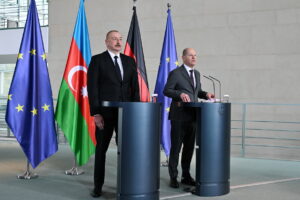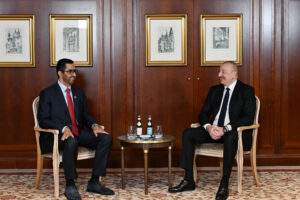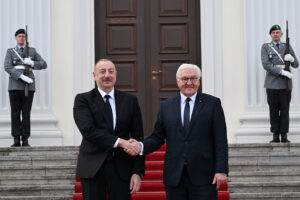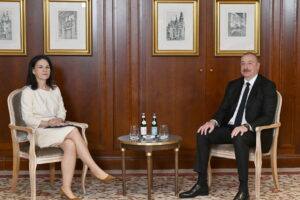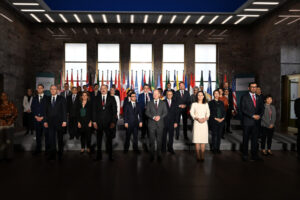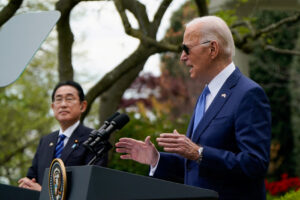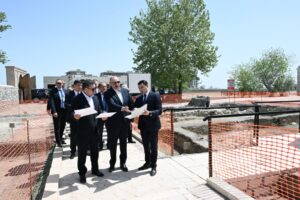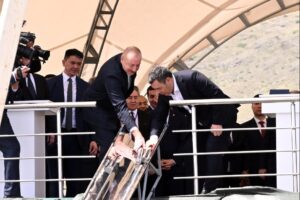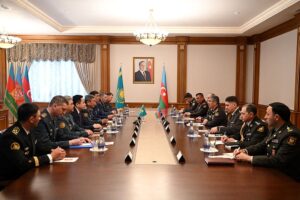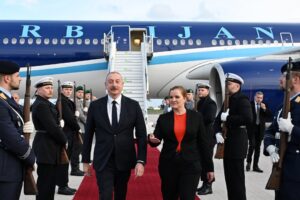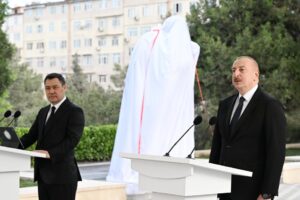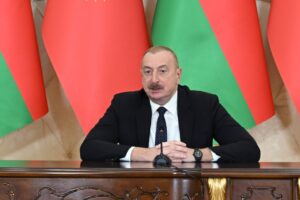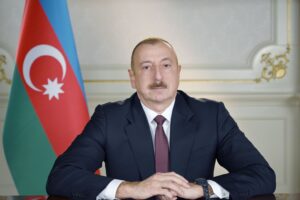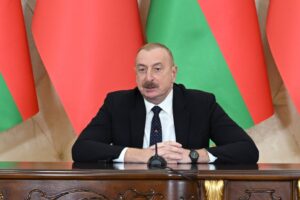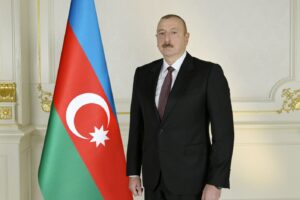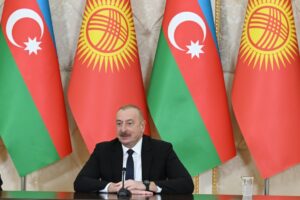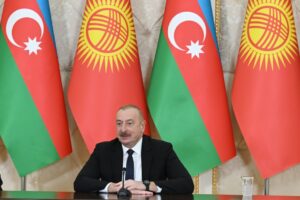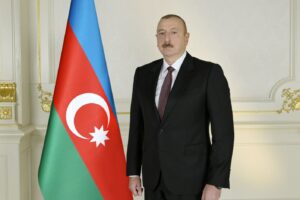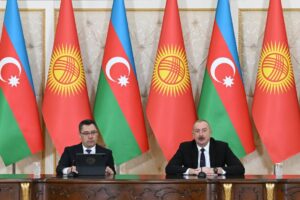Tokyo, 15 April, /AJMEDIA/
Though the Karabakh issue may seem settled, the question of peace between Armenia and Azerbaijan remains unresolved. Despite three years of negotiations between Yerevan and Baku, a peace agreement has yet to be reached, largely due to Nikol Pashinyan’s inconsistent position. While the Armenian PM sends encouraging signals to Baku, he’s infamous for saying one thing and doing the opposite. It appears that Azerbaijan, Türkiye, Russia, the EU, and the US, are now forced to play the game of “Understanding Pashinyan”.
Recently, Pashinyan made several statements in parliament that hint at progress in pursuing a peace deal with Azerbaijan. He affirmed Armenia’s readiness to speed up one of the main aspects of the peace deal – border delimitation. Specifically, he mentioned that Armenia is open to initiating the border delimitation process with four Azerbaijani villages currently under Armenian control but recognized as part of Azerbaijan.
Moreover, Pashinyan reiterated that regional issues, such as borders and communications, should be resolved directly between Armenia and Azerbaijan, without third-party intervention. However, this didn’t deter him from heading to Brussels for discussions with Antony Blinken and Ursula von der Leyen on these very regional matters, despite supposedly not requiring the involvement of third countries.
To understand what Pashinyan truly thinks and wants, it’s necessary to take a broader look at the situation in which the Armenian Prime Minister finds himself. Armenia is currently in an extremely challenging situation. Four factors stand out:
– reconciliation efforts with Azerbaijan and Türkiye;
– strengthening ties with Western partners;
– crisis in relations with Russia;
– the imperative to drive Armenia’s economic growth forward.
Pashinyan’s contradictory statements and actions are a reflection of this fourfold crisis that Armenia finds itself grappling with in 2024.
It seems that the Armenian PM understands – and openly acknowledges – that his country cannot achieve peace or development without improving relations with Baku and Ankara. While in Brussels, Pashinyan confirmed Armenia’s commitment to enhancing relations with Azerbaijan. However, upon returning to Yerevan, he immediately proposed extending the EU observer mission’s mandate on the border with Azerbaijan for another two years. Does this indicate that Pashinyan doesn’t anticipate signing a peace treaty with Azerbaijan for at least the next couple of years?
Former US Ambassador to Azerbaijan, Matthew Bryza, believes that despite Pashinyan’s mixed signals, significant progress has been achieved in negotiations between Azerbaijan and Armenia.
“PM Pashinyan has been stating for several weeks that those four villages need to be returned to Azerbaijan for lasting peace. So, this latest statement from Pashinyan appears to be a continuation of his approach, which is clearly committed to achieving both a peace treaty with Azerbaijan and a border delimitation agreement. I believe that the goal is to reach a peace treaty, and there has been tremendous progress. If you consider what the Azerbaijani side says, that peace has never been so close. I think both sides are quietly making significant progress, but they haven’t yet reached a final agreement, and the issues are complex. However, I am quite optimistic that both leaders are committed to reaching a peace treaty, as long as opponents of peace in Armenia do not prevail,” said Bryza.
The belief exists that Pashinyan is working to firmly embed European observers in Armenia to foster a more favorable agenda in relations with the EU. In Yerevan, this move is believed to accelerate the country’s shift towards the West.
Moreover, Armenia is banking on Western protection against Russia. The Armenian side has repeatedly signaled a departure from its traditional ally – Russia. Pashinyan, without wasting time, consistently critiques the CSTO, stating that the organization hasn’t provided any assistance to Armenia.
Protection from a potential Russian backlash to Armenia’s “turnaround” is genuinely needed, especially economically. Any pro-Western or anti-Russian statements from Armenian authorities immediately trigger issues with exporting Armenian products to Russia – a pivotal market for the country, particularly in agriculture, brandy, and other key goods.
Matthew Bryza believes that Armenia’s economy will keep deteriorating and won’t see substantial growth if it remains solely reliant on its connections with Russia. The US expert suggests reintegrating the Armenian economy into the region, and ultimately, into Europe, as the way forward.
“Armenia’s economic prospects lie in reintegrating with the regional and European economies through connections with Türkiye and Azerbaijan. So, I believe cooperation corridors, whether through Azerbaijan, Georgia, or Türkiye, offer the potential for Armenia’s future economic growth,” he said.
Pashinyan’s concerns extend beyond just the economy to the preservation of his own authority – and Russia poses a significant threat in this regard as well. The opposition in Armenia largely comprises pro-Russian factions. Additionally, Pashinyan’s main political adversaries stem from the defeated “Karabakh clan,” a time when Yerevan and Moscow were close allies. Pashinyan fears that with Kremlin backing, the opposition could regain power, either through elections or another revolution.
Recent remarks by the Armenian prime minister regarding former leaders of the Karabakh separatists are tied to this. Pashinyan accused them of plotting a coup, citing information and evidence of their plans to seize control in Armenia. Previously, Pashinyan also accused Russia of attempting a state coup. It’s clear that any challenges to his leadership, according to the Armenian prime minister, are directly linked to Moscow.
“I think Pashinyan is sincere about the threat he faces from the Karabakh separatists. The Karabakh clan is known for its desire to regain power and its willingness to employ harsh tactics. You may recall the large street protests against his agreement for peace with Azerbaijan, which haven’t ceased. The people who oppose him, the so-called Karabakh clan, don’t seek peace with Azerbaijan; they want ongoing conflict,” Ambassador Bryza said in this regard.
If we’re to compare Nikol Pashinyan’s current predicament to a chess game, it resembles a zugzwang – a situation where any move he makes only worsens his position on the board. Pashinyan finds himself unable to make a move that wouldn’t further deteriorate his situation.
Moreover, the Armenian prime minister lacks both the political experience and strategic thinking ability to grasp that sooner or later, he’ll have to find a way out of this impasse. The way out has been known for quite some time: it lies in signing a peace treaty with Azerbaijan.
Indeed, a peace treaty with Baku could be the best solution: it would pave the way for Armenia to improve relations with Türkiye. Additionally, it would enable Armenia to join major regional projects – transit, energy, and many others. It’s worth noting that all these projects are in some way connected to Azerbaijan, meaning that without resolving relations with Baku, Yerevan won’t be able to participate in these projects.
Conversely, if Armenia manages to reintegrate into the regional economy, it would provide the country with much-needed economic growth and income not tied to Russia. It would also significantly facilitate Armenian products’ access to European markets. Isn’t this what the Armenian prime minister wants?
The path is there, and it’s quite simple – everyone understands that. It remains for Nikol Pashinyan himself to finally realize it.


